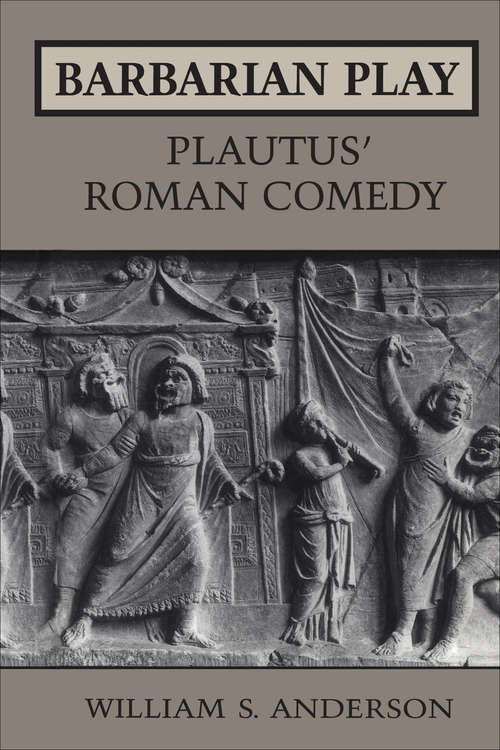Barbarian Play: Plautus' Roman Comedy
By:
Sign Up Now!
Already a Member? Log In
You must be logged into Bookshare to access this title.
Learn about membership options,
or view our freely available titles.
- Synopsis
- In this volume William S. Anderson sets Plautus, who wrote Rome's earliest surviving poetry, in his rightful place among the Greek and Roman writers of what we know as New Comedy (fourth to second centuries). Anderson begins by defining major innovations that Plautus made on inherited Greek New Comedy (Menander, Philemon, and Diphilus), transforming it from romantic domestic drama to a celebration of rollicking family anarchy. He shows how Plautus diminished the traditional importance of love and replaced it with a new major theme: 'heroic badness,' especially embodied in the rogue slave (ancestor of the impudent servant, valet, or maid). Anderson then examines the unique verbal texture of Plautus' drama and demonstrates his revolt against realism, his drive to have his characters defy everyday circumstances and pit their intrepid linguistic wit against social order, their Roman extravagant impudence against Greek self-control. Finally, Anderson explores the special form of metatheatre that we admire in Plautus, by which he undermines the assumptions of his Greek 'models' and replaces them with a new, confident Roman comedy.
- Copyright:
- 1996
Book Details
- Book Quality:
- Publisher Quality
- ISBN-13:
- 9781442654297
- Publisher:
- University of Toronto Press, Scholarly Publishing Division
- Date of Addition:
- 01/16/17
- Copyrighted By:
- University of Toronto Press
- Adult content:
- No
- Language:
- English
- Has Image Descriptions:
- No
- Categories:
- History, Nonfiction, Literature and Fiction, Drama, Plays and Theater, Language Arts
- Submitted By:
- Bookshare Staff
- Usage Restrictions:
- This is a copyrighted book.
Reviews
Other Books
- by William Anderson
- in History
- in Nonfiction
- in Literature and Fiction
- in Drama, Plays and Theater
- in Language Arts
